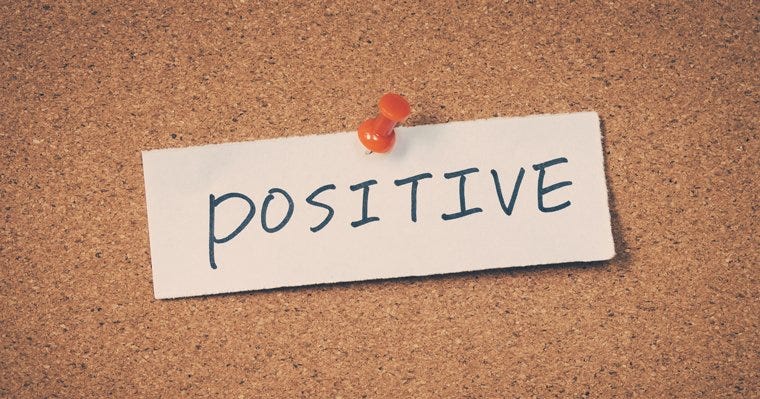Don’t Let Negative Thoughts & People Derail the New Year
While the focus for many heading into a new year is around physical health and conditioning, there are also things we must do to grow ourselves through positive interactions and environments
The New Year is one of my favorite times of the year. It’s a fresh start and an opportunity to do better than we did last year, right? Well, this year I’m trying to keep that mindset as I approach it. But it’s not always easy because people can be—and often are—so negative. If you find yourself surrounded by negativity, here are some tips on how to surround yourself with more positive people and manage your thoughts so you don’t let others derail your new year:
Surround yourself with positive people.
The next time you feel surrounded by negative people, ask yourself: is this person helping me achieve your goals? And if not, am I better off without them in my life? If you can't think of how these people are helping your life and career, it may be time to find some new acquaintances.
Negative people are more likely to be critical and judgmental—and they won't hesitate to tell you exactly how they feel about everything from your outfit choices to your job performance. Sure, they're sometimes funny or entertaining (especially when they're not focused on you), but their constant negativity can make it difficult for anyone around them to reach their full potential.
Realize that you don’t have to engage with negativity.
It’s important to remember that you don’t have to engage with negativity. There is no obligation to spend time with people who bring you down or make you feel bad about yourself, even if they’re family members or close friends. Being selective about who you spend time with can help protect your mental health and give you more opportunities for positive experiences.
You can manage your thoughts and feelings before you engage others.
If you feel overwhelmed by negative thoughts and emotions, it's important to know how your thoughts and emotions affect how you engage with others.
It will help if you can identify some of the common triggers that lead to negative thinking patterns, such as:
Thoughts based on past experiences or relationships (e.g., "I'm not good enough," or "Everyone else is happier than me.")
Habits of mind (e.g., "I'm always late," or "I have no friends.")
Emotional reactions to situations (e.g., frustration when things don't go according to plan.)
Once you're aware of these triggers, there are several ways to manage them before they cause problems.
Learn to listen and respond instead of reacting.
Listen. Chances are, the person is just as frustrated by their circumstances as you are. Listening will help you understand their situation and how it affects them, giving you a better idea of how to help them or relate to their situation.
Don’t interrupt—even if what they have to say upsets you or makes no sense to you.
Don’t jump to conclusions or make assumptions based on one statement that doesn’t seem right (e.g., “I can never get anything done around here!”).
Don’t take things personally; if someone says something negative about another person, don't assume they're talking about yourself (e.g., “Can't anyone ever do anything right?! She's so lazy!”).
Now, have a good year
I’m writing these suggestions to help readers have a more positive 2023. But I am also doing it to remind myself. Self-improvement, coaching, and leadership are never easy. Our goals are much more attainable when we continually work on improving ourselves, making it possible to serve and help others.


